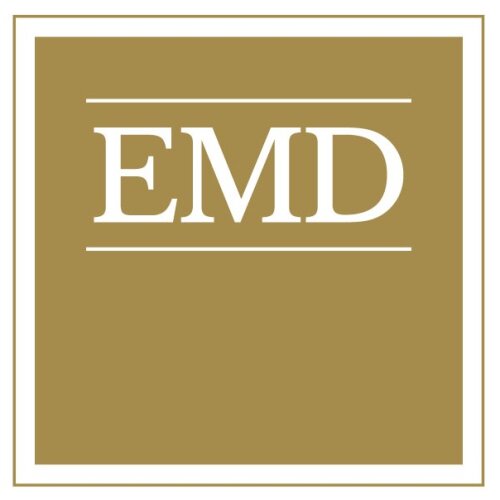Best Biotechnology Lawyers in Malta
Share your needs with us, get contacted by law firms.
Free. Takes 2 min.
Or refine your search by selecting a city:
List of the best lawyers in Malta
About Biotechnology Law in Malta:
Biotechnology in Malta encompasses a wide range of activities related to the manipulation of biological systems and organisms for commercial or research purposes. This field is heavily regulated to ensure the protection of human health, safety, and the environment.
Why You May Need a Lawyer:
There are various situations where you may need legal assistance in the field of Biotechnology in Malta. This includes drafting or reviewing contracts, resolving disputes with suppliers or partners, navigating regulatory requirements, protecting intellectual property, and ensuring compliance with local laws and guidelines.
Local Laws Overview:
In Malta, Biotechnology is primarily governed by the 2016 Biotechnological Inventions Act and the Genetically Modified Organisms (Contained Use) Regulations. These laws establish guidelines for the ethical use of biotechnology, including the handling of GMOs, research involving human subjects, and data protection.
Frequently Asked Questions:
1. What are the main regulatory bodies overseeing Biotechnology in Malta?
The main regulatory bodies overseeing Biotechnology in Malta include the Malta Medicines Authority, the Environment and Resources Authority (ERA), and the Malta Council for Science and Technology.
2. How can I protect my intellectual property in the field of Biotechnology?
You can protect your intellectual property in Biotechnology by filing patents for your inventions, trademarks for your brand, and copyrights for your creative works. It is advisable to seek legal advice to ensure proper protection.
3. What are the key considerations when entering into a research collaboration in Biotechnology?
Key considerations when entering into a research collaboration in Biotechnology include intellectual property rights, data sharing agreements, funding and resources allocation, publication rights, and dispute resolution mechanisms.
4. What are the potential liability risks in Biotechnology research and development?
Potential liability risks in Biotechnology research and development include environmental damage, harm to human health, breaches of data protection laws, and violations of intellectual property rights.
5. How can I ensure compliance with Biotechnology laws and regulations in Malta?
To ensure compliance with Biotechnology laws and regulations in Malta, it is essential to stay informed about the latest legal developments, obtain legal advice when needed, keep accurate records of your activities, and implement robust compliance programs.
6. What should I do if I suspect a violation of Biotechnology laws or regulations?
If you suspect a violation of Biotechnology laws or regulations, you should report your concerns to the relevant regulatory authorities, seek legal advice on the best course of action, and document any evidence to support your claims.
7. Can I transfer my Biotechnology patents or licenses to a third party in Malta?
Yes, you can transfer your Biotechnology patents or licenses to a third party in Malta through a legal agreement known as an assignment or licensing agreement. It is advisable to seek legal assistance to ensure the transfer is valid and enforceable.
8. What are the ethical considerations in Biotechnology research involving human subjects?
Ethical considerations in Biotechnology research involving human subjects include obtaining informed consent, protecting confidentiality and privacy, minimizing risks to participants, and ensuring the study is conducted in accordance with ethical guidelines and regulations.
9. How can I resolve a dispute with a Biotechnology supplier or partner in Malta?
To resolve a dispute with a Biotechnology supplier or partner in Malta, you can try to negotiate a mutually acceptable solution, seek mediation or arbitration, or take legal action through the courts if necessary. It is recommended to consult a lawyer to explore your options.
10. What are the penalties for non-compliance with Biotechnology laws in Malta?
The penalties for non-compliance with Biotechnology laws in Malta may include fines, imprisonment, suspension of licenses or permits, civil liability for damages, and reputational harm. It is essential to take compliance seriously to avoid facing legal consequences.
Additional Resources:
For additional information and resources related to Biotechnology in Malta, you can visit the Ministry for Education and Employment, the Malta Life Sciences Park, and the Malta Chamber of Scientists. These organizations provide valuable insights and support for individuals seeking legal advice in the field of Biotechnology.
Next Steps:
If you require legal assistance in the field of Biotechnology in Malta, it is advisable to consult a qualified lawyer with expertise in this area. They can provide tailored advice and representation to help you navigate the complex legal landscape and protect your interests effectively.
Lawzana helps you find the best lawyers and law firms in Malta through a curated and pre-screened list of qualified legal professionals. Our platform offers rankings and detailed profiles of attorneys and law firms, allowing you to compare based on practice areas, including Biotechnology, experience, and client feedback.
Each profile includes a description of the firm's areas of practice, client reviews, team members and partners, year of establishment, spoken languages, office locations, contact information, social media presence, and any published articles or resources. Most firms on our platform speak English and are experienced in both local and international legal matters.
Get a quote from top-rated law firms in Malta — quickly, securely, and without unnecessary hassle.
Disclaimer:
The information provided on this page is for general informational purposes only and does not constitute legal advice. While we strive to ensure the accuracy and relevance of the content, legal information may change over time, and interpretations of the law can vary. You should always consult with a qualified legal professional for advice specific to your situation.
We disclaim all liability for actions taken or not taken based on the content of this page. If you believe any information is incorrect or outdated, please contact us, and we will review and update it where appropriate.
Browse biotechnology law firms by city in Malta
Refine your search by selecting a city.












